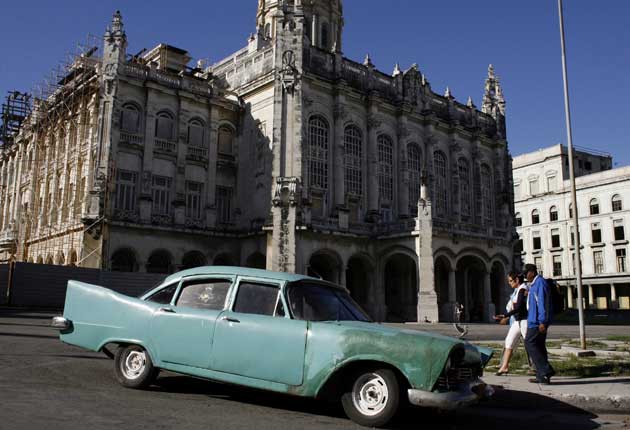Viva the Cuban property revolution!
The largest island in the Caribbean is finally opening its doors to investment

For a communist country, Cuba has marketed itself pretty well over the years. It's almost impossible to hear the island's name without thinking of white rum, cigars, salsa, Ernest Hemingway and streets lined with battered 1950s American cars.
It's also done a pretty good job with tourism. After decades of isolation, the government began promoting the island's beaches and stunning crumbling capital city, Havana, to international visitors around 15 years ago. And despite concerns over its human rights record, it has become one of the most popular destinations in the Caribbean, with over two million visitors each year.
The island's communist status, along with the trade restrictions imposed by the US government since 1959, have prevented large-scale investment by overseas companies. However, that may be about to change. One of the first things President Obama did on taking office this year was to signal a thaw in relations with Cuba.
Change has come to the country; private holiday homes are on sale to foreign buyers for the first time in 50 years, Cuban exiles can now travel freely from the US to visit their former home, and trade and investment restrictions are expected to be reviewed. Such moves will undoubtedly spark a rush from developers to buy up Havana's colonial-style buildings and beautiful beachfront plots for hotels, apartments and holiday resorts.
The first of these is already underway. British company Esencia is building a residential golf development, The Carbonera Club, in the Varadero region. "Cuba is a wonderful country with great cultural significance and potential," says chief executive Andrew Macdonald. "We didn't base our business projections on America relaxing restrictions, but it's an important step and makes it an exciting time to be in Cuba."
It's taken Macdonald six years to get permission for the project, but he is seeing interest from investors all over the world. Hollywood superstar Jude Law, pictured, has reportedly fallen in love with Cuba, and plans to buy in the new development. "Ours is the first residential resort sanctioned by the government and offers a mix of golf, sailing and access to the best beaches in Cuba," Macdonald says.
The project will offer around 900 apartments and villas, with design input from Sir Terence Conran, plus a PGA golf course, hotel, spa and marina. Apartments start at £77,500 and rise to £1.1m for villas, but this doesn't get you the freehold. "Foreigners can only lease property for 75 years, but I expect the law to change in time," says Macdonald, who believes his will be the first in a wave of residential projects should the political situation alter.
That could be a slow and difficult process, according to Ian Taylor MP, chairman of the Cuba Initiative, a non-governmental body set up to facilitate British investment in Cuba. "Cuba is complicated, but there have been a lot of changes since the 1990s," he says. "It's inevitable that tourism is one of the first areas of growth and investment."
Taylor admits there are issues with property ownership, and that the conditions of infrastructure are poor, especially the roads and rail network, but he says the Cuban government is keen to encourage foreign finance and that things will improve.
"Cuba has enormous potential and will be attractive to investors if it does open up, but you can't make any assumptions that the political system will change. Any investment needs to be made within the context of the Cuban government."
Cuba: Buyer's guide
* Private property ownership in Cuba is prohibited, people have the right to swap homes but not to buy or sell.
* Non-nationals can only own designated property via non-renewable, 75-year leases. Ownership and residency issues are complex, so don't be tempted to buy private homes.
* Cuba is in the centre of the hurricane belt and has been badly hit several times in the past few years.
* The political situation is still uncertain, so this is not an investment for a novice or the risk averse.
Subscribe to Independent Premium to bookmark this article
Want to bookmark your favourite articles and stories to read or reference later? Start your Independent Premium subscription today.

Join our commenting forum
Join thought-provoking conversations, follow other Independent readers and see their replies